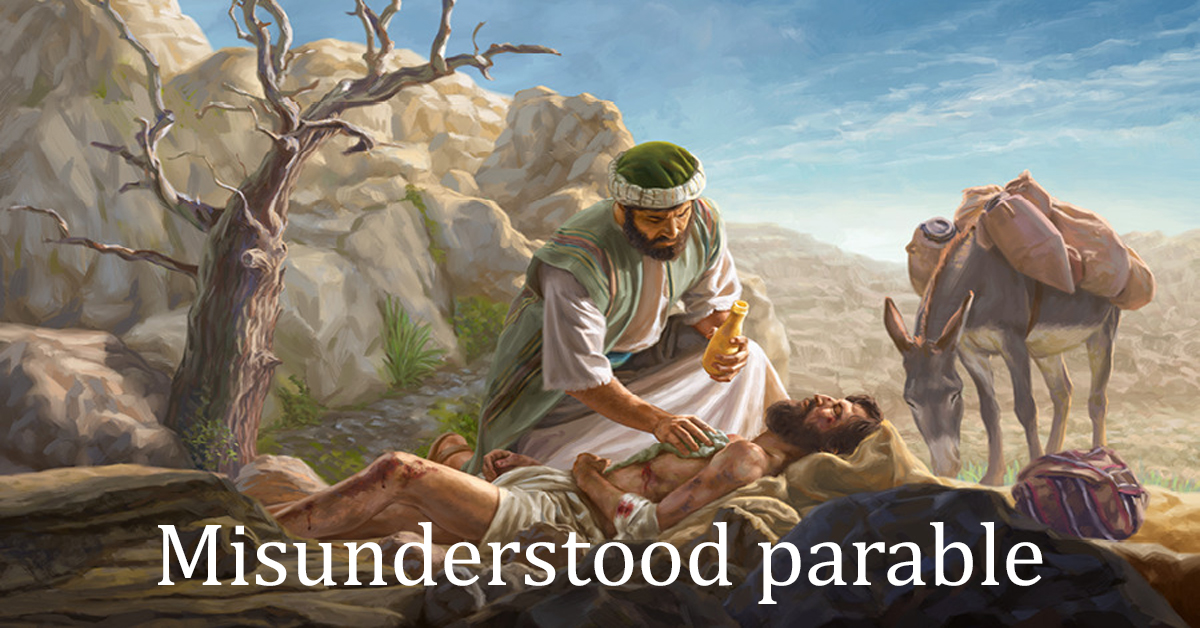While the spiritual significance of God’s Word is lost on the unenlightened mind, the world is not entirely ignorant of His truth. Some biblical concepts translate to the sinful mind, even if it can’t grasp their full meaning.
The parable of the Good Samaritan (Luke 10:30-37) is one of those concepts that the world embraces in its ignorance. Virtually everyone appreciates the idea of selfless sacrifice for others in need – especially for strangers. In fact, the term Good Samaritan has become shorthand to describe those who go out of their way to help others – even with something as simple as changing a flat tyre.
But we need remember that Christ taught in parables to conceal truth from religious hypocrites and unbelievers, and that true meaning is not immediately or obviously perceptible, particularly to the unilluminated mind.
That’s the case with the parable of the Good Samaritan. Christ’s rich, complex illustration is routinely flattened into a simple, heart-warming story about showing kindness to others. Even some in the Church see this parable as nothing more than a charge to engage in social projects, charitable works, and political action.
But that’s not the main point of this story.
In order to get at the true meaning of the parable of the Good Samaritan, we need to remember another key feature of Christ’s teaching ministry – that all parables are salvation stories. We can’t afford to get caught up in the fictional details of Christ’s parables -compelling as they might be – and miss the profound theological truth He illustrated for His followers.
In the case of this particular parable, all of Christ’s words come in response to a Scribe’s question about how he could inherit eternal life (Luke 10:25). The Lord replied by asking the Scribe what God’s Word said (v. 26), which prompted the Scribe to sum up the entire Law in two commandments: “You shall love the Lord your God with all your heart, and with all your soul, and with all your strength, and with all your mind; and your neighbour as yourself.” (v. 27). Christ affirmed the Scribe’s response (v. 28), but he was still not satisfied.
Scripture records his self-justifying follow up question: “And who is my neighbour?” (Luke 10:29). This was a particularly pointed question, as the Jewish religious leaders’ entire system of spiritual elitism rested on their duplicitous definition of who their “neighbours” were.
Through the misinterpretation and misapplication of Scripture, they had constructed a system that afforded them great honour and prestige while also giving them license to openly mistreat, demean, and persecute anyone who did not live up to their standard of righteousness. They had turned the hatred of sinners into a virtue and instituted a spiritual caste system that slotted the entire nation of Israel under them in religious subjugation. With his impertinent question, this scribe believed he had cornered Jesus into affirming his spiritual superiority over everyone else.
Of course, he hadn’t. Instead, he offered Jesus the perfect opportunity to vividly illustrate the vain hypocrisy of the Scribes and Pharisees, and the spiritual bankruptcy of the system of works-righteousness they presided over.
This powerful parable is not primarily a call to charity and kindness, but a condemnation of self-righteousness.

